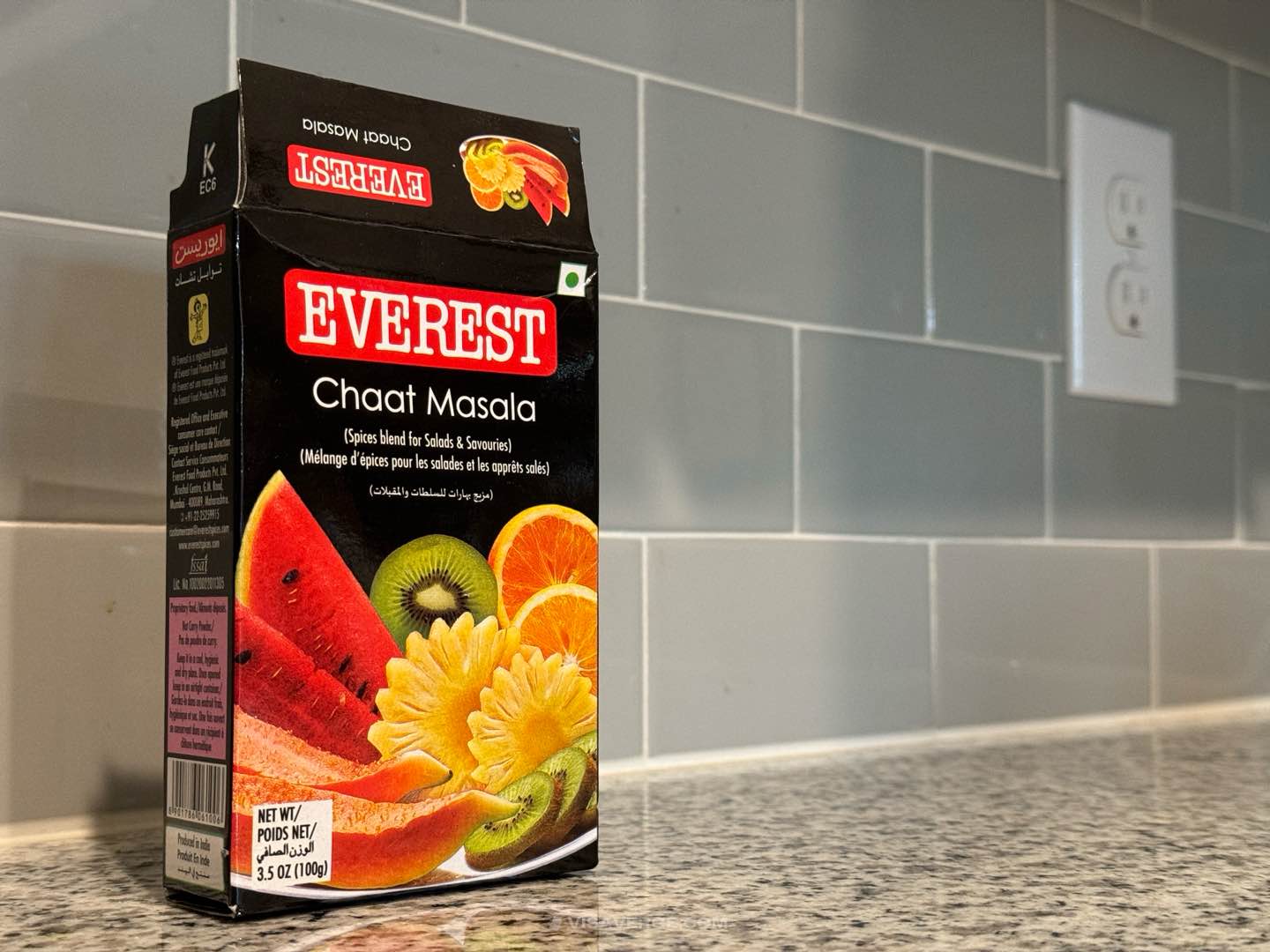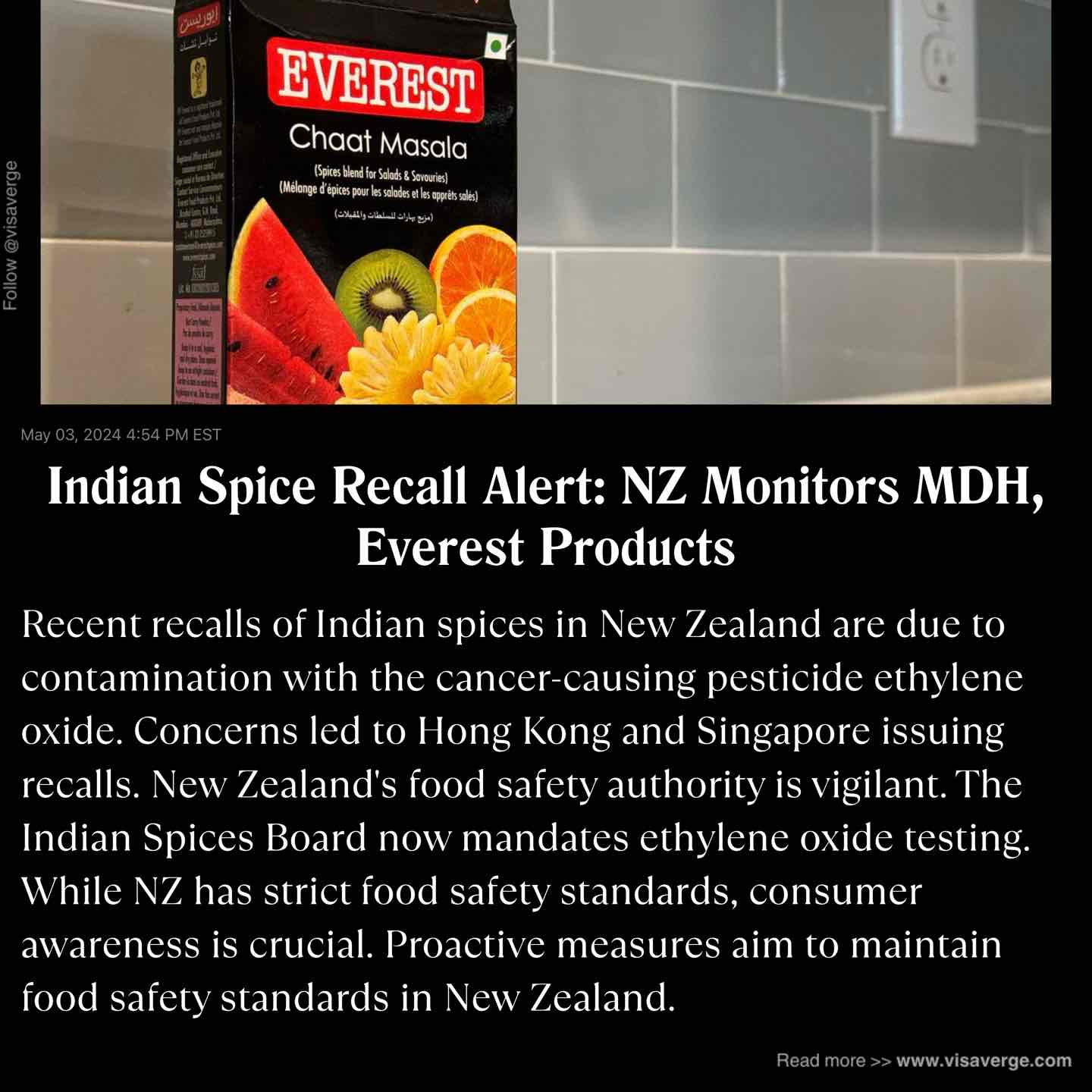What is the Concern with Imported Indian Spices in New Zealand?
Recent actions by international food safety authorities have put the spotlight on specific packaged Indian spice products. The key reason? Contamination concerns centered around a pesticide known as ethylene oxide, which is a cancer-causing chemical. Notably, leading Indian manufacturers MDH and Everest are at the center of these recalls, impacting global markets including New Zealand.

How is Ethylene Oxide a Health Risk?
Ethylene oxide is primarily utilized for fumigating spices to ensure sterilization. However, because of its proven effects as a carcinogen in humans, its use in food processing has been largely discontinued in many parts of the world. Countries like New Zealand, Australia, Europe, the United States, and Singapore have phased out the application of this chemical due to its associated health risks.
How Have Other Countries Reacted to the Spice Contamination?
On 5 April, Hong Kong took decisive action by suspending the sale of four spice packages from MDH and Everest due to high levels of ethylene oxide. This concern was reiterated when, two weeks later, Singapore also issued a recall for a packaged spice product specifically intended for fish curry, manufactured by Everest. The U.S. Food and Drug Administration is keeping a close eye on these developments, indicating the seriousness of the health implications.
What is New Zealand’s Approach to the Indian Spice Recall?
Vincent Arbuckle, the deputy director-general of New Zealand Food Safety, a branch of the Ministry of Primary Industries, affirmed the agency’s vigilance concerning the imported spices. “We are aware of the issue,” stated Arbuckle. “As MDH and Everest spices are also available in New Zealand, we are looking into it.” His comments underscore the proactive stance NZ food safety officials are taking to ensure the well-being of consumers.
Further reassuring is a 2001 study in New Zealand, which found that “the residues of ethylene oxide in spices did not represent a significant human health risk because of the low concentrations,” according to Arbuckle. This offers some solace but does not diminish the need for ongoing vigilance.
What Measures is the Indian Government Taking?
In response to the recalls, the Spices Board of India, which regulates spice exports, has taken several decisive steps. It has begun mandatory testing for ethylene oxide in all spice consignments destined for Hong Kong and Singapore. Furthermore, the Board has set specific limits for ethylene oxide residues – namely, a maximum residue limit (MRL) of 50 parts per million (ppm) for the Singapore market. Contrastingly, Hong Kong maintains a zero-tolerance policy. The Board has assured that “all spice consignments, including ready-to-eat products destined for Singapore and Hong Kong, shall be accompanied with cleared analytical report for ETO issued by Spices Board.”
How Can New Zealand Consumers Stay Safe?
While NZ food safety standards are among the highest globally, consumers should remain informed about the products they purchase. Checking labels, staying updated on food safety notifications, and opting for products from trusted sources are practical steps everyone can take. For more in-depth guidance on food safety and the official protocols around food imports, visiting the Ministry of Primary Industries website can provide comprehensive insights.
Through these proactive measures and continuous monitoring, New Zealand aims to maintain its stringent food safety standards, ensuring that the spices and other imported food items consumed by its residents are safe and of the highest quality.
Learn Today:
- Ethylene Oxide: A chemical compound primarily used for fumigating spices to ensure sterilization. However, ethylene oxide is a known carcinogen in humans, leading to health concerns when residues are present in food products.
-
Recalls: Actions taken by regulatory authorities or manufacturers to remove contaminated or potentially harmful products from the market. In the context of immigration, recalls can pertain to imported goods or products that do not meet safety standards.
-
Maxium Residue Limit (MRL): A specific threshold established by regulatory bodies, such as the Spices Board of India, to determine the maximum permissible concentration of a contaminant, like ethylene oxide, in food products for a particular market.
-
Food Safety Standards: Regulations and guidelines set by government agencies to ensure the safety and quality of food products consumed by the public. These standards encompass various aspects of food production, handling, and distribution to protect consumer health.
-
Imported Products Surveillance: The monitoring and oversight conducted by governmental agencies, such as New Zealand Food Safety, to assess and manage risks associated with imported goods, including spices in this context. This surveillance aims to safeguard public health by addressing potential contamination or safety issues in imported products.
This Article In A Nutshell:
Amid health concerns over ethylene oxide in Indian spices, New Zealand remains vigilant. Recent recalls globally sparked by the chemical impacted markets. NZ Food Safety monitors MDH and Everest imports. Consumers advised to check labels and stay updated. Indian government mandates testing for ethylene oxide in exports, ensuring safety measures.
— By VisaVerge.com
Read More:
- Investigation Underway After Sudden Death of Indian Man in Dunedin – Uncover details on the ongoing inquiry and public response to this mysterious incident.
-
FDA Investigates Lead Contamination in Swad Cinnamon, Issues Warning – Learn about the FDA’s efforts to address potential health risks associated with contaminated spices.














